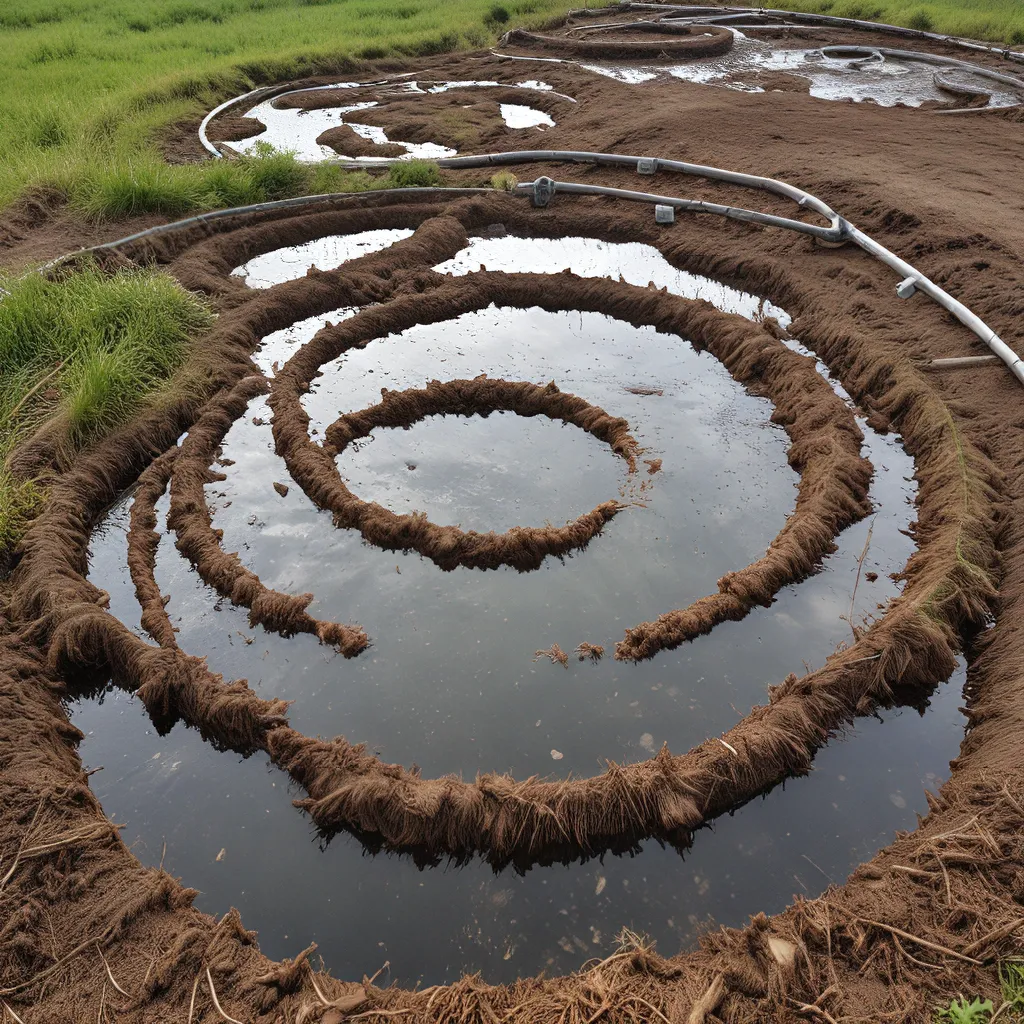
In the ever-evolving landscape of sustainable waste management, a remarkable opportunity has emerged – the intersection of wastewater treatment and the circular bioeconomy. As a leading provider of wastewater services at Alpha Wastewater, I’ve had the privilege of witnessing firsthand the transformative potential of this dynamic relationship.
Traditionally, wastewater treatment has been viewed as a necessary but often overlooked component of the waste management ecosystem. However, in recent years, a paradigm shift has occurred, where forward-thinking organizations like ours have recognized the immense value that can be extracted from these often-underutilized organic waste streams.
Embracing the Circular Bioeconomy: A Holistic Approach
The circular bioeconomy is a concept that has gained significant traction in recent times, and for good reason. It represents a fundamental shift in the way we approach resource utilization, moving away from the linear “take-make-waste” model and towards a more sustainable, regenerative system.
At the heart of the circular bioeconomy lies the principle of maximizing value creation from organic waste streams. This means that instead of simply treating wastewater and disposing of the byproducts, we can unlock a treasure trove of valuable resources that can be repurposed and reintegrated into various industries.
Unlocking the Potential of Wastewater: From Waste to Wealth
One of the key aspects of the circular bioeconomy is the recognition that waste is not waste, but rather a valuable resource in disguise. This mindset shift has profound implications for the wastewater treatment industry, as we can now explore innovative ways to extract and transform these organic materials into a wide range of products and services.
“The world has 60 harvests left – 60 more years of food before our soil quality is diminished to the point that it can no longer grow enough food to feed the global population.” – Source
This sobering statistic underscores the urgent need to rethink our approach to resource management, and wastewater treatment is a critical piece of the puzzle. By harnessing the power of the circular bioeconomy, we can transform these organic waste streams into sustainable sources of bioenergy, biomaterials, and even organic fertilizers** that can help replenish and rejuvenate our depleted soils.
Unlocking the Bioeconomy: Innovations in Wastewater Treatment
At Alpha Wastewater, we have been at the forefront of this technological revolution, investing in cutting-edge research and development to unlock the full potential of wastewater treatment.
One of the most promising areas of innovation is the use of anaerobic digestion to convert organic matter into biogas, a renewable energy source that can power our treatment facilities and even be fed back into the grid. By capturing and repurposing these valuable byproducts, we not only reduce our environmental footprint but also create new revenue streams that can help offset the costs of wastewater treatment.
But the innovation doesn’t stop there. We’ve also explored the potential of bioplastics and other biomaterials derived from wastewater, opening up exciting new possibilities in the realm of sustainable product development. Imagine a world where the very materials that once polluted our waterways are now being transformed into eco-friendly alternatives to traditional plastic – a true testament to the power of the circular bioeconomy.
Cultivating a Regenerative Future: Wastewater and Soil Health
Another remarkable aspect of the circular bioeconomy is its potential to regenerate natural systems, particularly when it comes to soil health. By converting organic waste from wastewater into high-quality fertilizers, we can help replenish the vital nutrients that have been depleted from our soils due to intensive agricultural practices.
“Regenerative food production means employing techniques that replenish and improve the overall health of the local ecosystem. It supports natural systems, rebuilding and enhancing ecosystems while preserving air and water quality.” – Source
This approach, known as regenerative agriculture, holds the promise of restoring soil fertility, increasing biodiversity, and improving the overall resilience of our food production systems. As a wastewater treatment provider, we have a unique opportunity to contribute to this holistic solution by ensuring that the nutrients and organic matter extracted from wastewater are responsibly reintegrated into the agricultural cycle.
Tackling the Challenges of the Urban Bioeconomy
Of course, implementing a circular bioeconomy model for wastewater treatment is not without its challenges. Cities, in particular, face a unique set of obstacles when it comes to effectively managing organic waste streams and unlocking their true potential.
“Half of the world’s population currently lives in cities. This number is expected to grow to 68% by 2050, at which stage 80% of the world’s food will be eaten within cities.” – Source
The sheer volume and diversity of organic waste generated in urban areas, coupled with the complex logistics of collection and distribution, can make it a daunting task to establish a truly effective circular system. However, forward-thinking cities and organizations like Alpha Wastewater are rising to the challenge, exploring innovative solutions and forging collaborative partnerships to unlock the full potential of the urban bioeconomy.
Embracing the Future: A Sustainable and Regenerative Vision
As I reflect on the journey we’ve embarked on at Alpha Wastewater, I’m filled with a sense of optimism and determination. The circular bioeconomy represents a transformative opportunity to redefine the way we approach wastewater treatment and create a more sustainable, regenerative future.
By harnessing the power of innovation, fostering cross-sector collaboration, and embracing a holistic, systems-level approach, I believe we can unlock a treasure trove of untapped value from our organic waste streams. From bioenergy and biomaterials to regenerative agriculture, the possibilities are truly boundless.
As we continue to push the boundaries of what’s possible in the realm of wastewater treatment, I invite you to join us on this exciting journey. Together, we can rewrite the script on waste management, champion the circular bioeconomy, and pave the way for a more sustainable, resilient, and prosperous future. The time to act is now, and the rewards are within our reach.